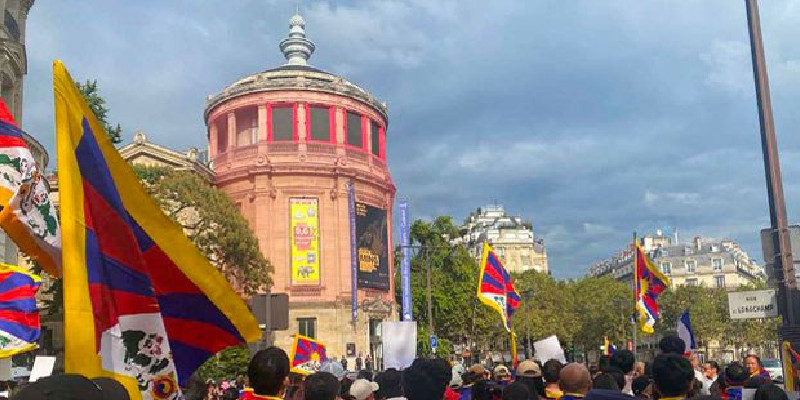In a significant victory for Tibetan activists, the Musée du Quai Branly-Jacques Chirac in Paris has committed to reverting to the use of “Tibet” instead of “Xizang” in its exhibits. The term “Xizang,” aggressively promoted by the Chinese government as a tool to erase their cultural and linguistic heritage.
Last year, China mandated the use of “Xizang” in all official documents to refer to Tibet, a move that activists view as part of Beijing’s broader strategy to Sinicize Tibetan culture. The Musée du Quai Branly, which showcases indigenous art from various regions including Asia, had renamed its Tibetan artifacts exhibit to “Xizang,” sparking outrage among Tibetan communities.
The museum’s decision to use “Xizang” was discovered amid criticism of the Musée Guimet in Paris, which had renamed its Tibetan galleries to “Himalayan World.” These changes triggered protests and a letter from Tibetan leader Penpa Tsering to French officials and museum directors, arguing that the terminology reflects Beijing’s wishes to rewrite history.
On September 21 and 29, over 700 Tibetans and supporters protested in Paris, carrying Tibetan flags and placards with messages like “Stop Sinicizing Tibetan history and culture.” Clément Tougeron, international affairs advisor to the president of the Musée du Quai Branly, met with representatives from six Tibetan organizations on September 25 and apologized for the insensitivity. He assured that all Tibetan artifacts in the museum’s catalog would be labeled as “Tibet” within three weeks.
Sikyong Penpa Tsering, the democratically elected president of the Tibetan government-in-exile, also expressed his disappointment in a letter to key French leaders. He criticized the museums for pandering to the Chinese government’s wishes and called for a course correction, emphasizing that France should not be complicit in Beijing’s efforts to erase Tibetan identity.
The Tibet Museum of the Central Tibetan Administration, the government-in-exile, condemned the French museums’ decisions as a distortion of history and a threat to Tibet’s cultural identity. The museum noted that the renaming was part of a broader effort discussed at the 7th International Seminar on Tibetan Studies in Beijing in August 2023, where scholars advocated for the adoption of “Xizang” to reshape Tibet’s global identity.
In October 2023, Radio Free Asia reported that the term “Xizang,” originating from the Ming dynasty, had replaced “Tibet” in official Chinese state media and communications. Chinese officials called the name “Tibet” “misleading” and replaced it to “enhance China’s international voice” regarding the region. Tibetan leadership claims the name “Xizang” was propagated by the United Front Work Department to erase Tibet’s status as an independent cultural entity.
During the September 25 meeting, Clément Tougeron apologized to a delegation of six Tibetan organizations, including Students for a Free Tibet, promising to correct the name within three weeks. A spokesperson for the Musée du Quai Branly stated that the term “Xizang” had been used in their collections for years before the Chinese state formalized the name in 2023. The spokesperson added that some artifacts were not properly attributed to Tibet on the museum’s website due to a “technical problem” which will be resolved.
Musée Guimet has not responded to requests for comment. Among the works in the Musée du Quai Branly’s Tibetan collection is “Life of Milarepa,” a 19th-century thangka painting depicting the legend of the titular Buddhist figure. As of this writing, the website lists the artwork’s origin as “China, Tibet.”
In his September 14 letter, Sikyong Penpa Tsering, who was elected to lead the exiled Tibetan government in northern India in 2021, also stated that China is making a concerted effort “to erase the identity of Tibet” and called the name changes at both French institutions “disheartening.”







Leave a Reply